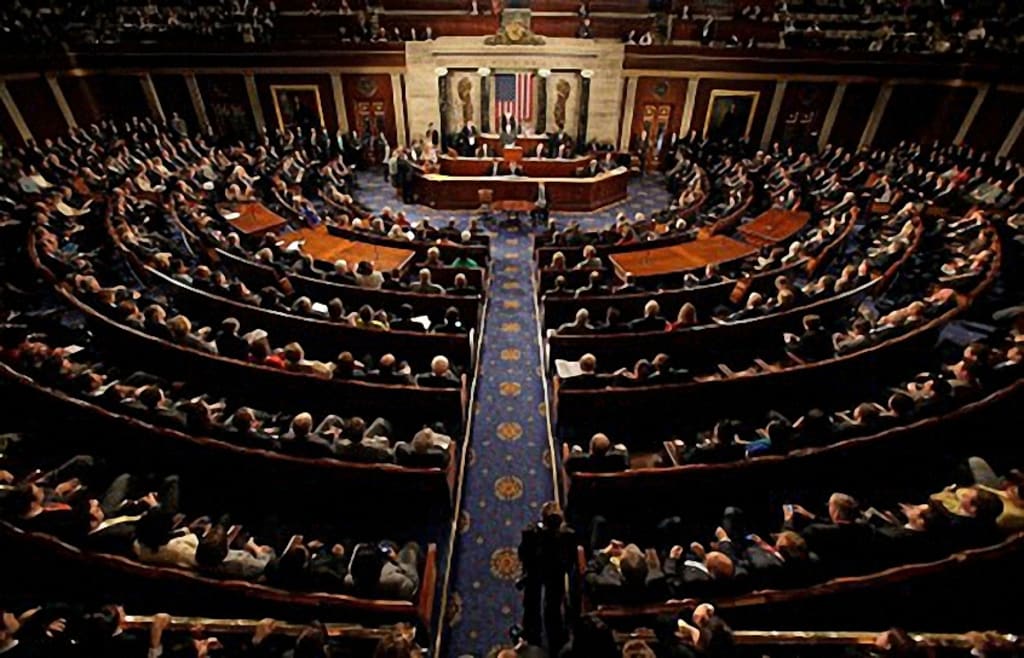American Politics and the Debt Crisis
and the possible impact on the presidential runs.

American Politics scholars study political institutions at both national and state levels, the nature of public opinion and its effect on policy, as well as connections between political behavior and politics. They use various methodologies such as quantitative, qualitative, comparative historical approaches.
American’s view democracy as either very well or somewhat well describing their nation, yet many are dissatisfied with democratic institutions and traditions.
The Debt Crisis
The United States is currently facing a debt crisis. A debt crisis occurs when government spending exceeds what can be recovered through taxes and it requires borrowing money through selling treasury bills, which then needs to be paid back with interest at some point later on — this has been how deficit funding has been done by US. If it becomes impossible for any nation to meet payments on its obligations it could result in default and catastrophic effects for both its economy and global financial markets.
As soon as the US reached its debt limit earlier this month, Treasury Department started taking “extraordinary measures” to avoid default. A default would compromise their ability to cover items like Social Security and Medicare benefits, military salaries, interest on national debt, tax refunds and possibly even keeping their AAA credit rating.
Politicians frequently debate how best to address debt crises, yet the reality is that there are no quick solutions. An effective debt solution involves both spending cuts and tax increases to bring down deficit levels — yet these options can have adverse effects on job creation and economic growth.
Short term, raising the debt ceiling would enable the government to continue meeting its commitments until economic growth becomes strong enough to support spending cuts and tax increases simultaneously. Therefore, ensuring economic expansion remains strong is vitally important.
Long term, the only effective solution to debt crises lies in lowering borrowing levels — something which can be achieved by lowering corporate and individual tax rates or increasing revenues collected from tobacco use and carbon emissions, among others. By decreasing borrowing costs and broadening tax bases globally, conditions will be established for long-term economic stability and prosperity.
The Run for the Presidency
The 2020 presidential campaign revealed how deeply Americans are divided on a range of issues ranging from economics and racial justice, foreign policy and law enforcement, among other matters. Nearly 8 in 10 members who identified with one major party reported differences with opposing sides related to core American values; roughly nine out of ten anticipated that victory by one side would cause lasting harm for society as a whole.
Democratic and Republican Parties dominate US national politics. Due to its plurality-based first-past-the-post voting system and incentive for strategic vote splitting, other political parties tend to have little or no representation or influence at national or state levels; yet third parties such as Theodore Roosevelt’s Bull Moose Party or Ross Perot’s Reform Party occasionally appear and gain significant local strength; these efforts rarely last more than 10 years.
As the 2024 campaign begins to gain steam, many candidates are quickly positioning their platforms and positions on key issues. Some blame a culture war for America’s deep divisions; New Jersey Gov. Chris Christie seeks to reduce corporate welfare while cutting spending through federal spending cuts; others (like former Arkansas governor Asa Hutchinson or lesser-known Republicans traveling through key primary states) seek to take down President Donald Trump by challenging his policies regarding Medicare, Social Security, abortion rights or other contentious topics which contradict core conservative principles.
The emergence of “woke” politics has added another element of divisiveness to discussions over government size and role. Proponents of “woke” politics see the need for increased equality within society as well as support for Democratic positions on affirmative action, women’s leadership, and climate change; critics counter with claims it has become a vehicle for regressive ideas that threaten social progress.
The Consequences for the World if there is a Default
Although no formal declaration of default has yet been made, its existence remains an ever-present danger. Failing to raise the debt ceiling would likely result in downgrades of our credit rating and higher interest rates for consumers and businesses alike. Furthermore, default would destabilize financial markets worldwide and have serious repercussions for the global economy.
The United States is the world’s largest economy, but its citizens and companies rely on services provided by government spending that would otherwise not exist without government support — national defense, social security and education among them — at a moment’s notice. Any failure on part of governments to fund those services would have an immense negative effect on global economies as it deprive citizens of basic health care as well as increase unemployment rates dramatically.
The federal government has an alternative plan in place to prevent default, known as “payment prioritization,” that allows it to continue paying the interest on bonds while cutting spending elsewhere. Unfortunately, this strategy may only compound its deficit further and force the Treasury to divert funds away from programs such as state programs or military spending, leading to their reduction as well as possibly leading to recession and high unemployment.
Americans recognize that their political system falls short of democratic ideals and are dissatisfied with specific aspects identified in recent studies. Eight in ten voters on both sides of the aisle indicate their differences lie with core values.
As political leaders become ever more divided and the deepening divisions between Democrats and Republicans in Congress widen, prospects of reaching a budget agreement appear slim. An impasse over raising the debt ceiling is likely to undermine investor trust in American bonds considered ultrasafe investments; such an event could trigger ripple effects throughout $24 trillion market for U.S. debt, freeze global financial markets and disrupt international commerce — potentially culminating in collapse of stock market or the international banking system altogether.





Comments
There are no comments for this story
Be the first to respond and start the conversation.